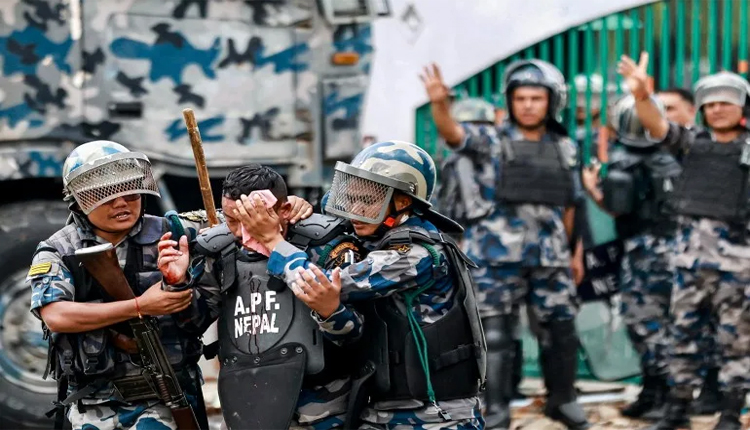Kathamandu: President Ram Chandra Paudel resigned on Tuesday in a youth-led wave of protests that was totally unprecedented, and Nepal had no such history of such massive political upheaval earlier, even when Prime Minister KP Sharma Oli resigned. Gen Z activists have ripped apart the very pillars that support governance in the Himalayan country.
The protests initially rallied around the government’s decision to ban 26 social media platforms, but the protestors’ demands grew to condemning corruption, nepotism, and authoritarianism on a national scale. Smartphone-wielding youngsters energised via networking sites like Reddit, Instagram, and X used them to reveal the opulent lifestyle of the ruling elite and their offspring, also known as “Nepo Kids”.
The protests deepened as a result of Sunday’s violent confrontation between the police and the demonstrators that left at least 19 young people dead. On Tuesday, however, the situation in the capital Kathmandu escalated and was beyond anyone’s control. Besides the acts of violence, the rioters also looted the Parliament and set fire to some government buildings and the houses of the high-ranking leaders, such as President Paudel, PM Oli, and former PM Sher Bahadur Deuba.
It is a historic moment in Nepal’s political scene when President Paudel resigns. The nation is faced with a leadership vacuum due to the exit of both the President and Prime Minister, along with several ministers who have either resigned or gone into hiding.
Quite a few Indian citizens are going to be affected by this news, as the Indian Ministry of External Affairs has released a travel advisory asking Indian citizens to postpone non-essential trips to Nepal. The Indian Ministry of External Affairs advises those already in Nepal to stay indoors and adhere to safety measures.
Many people are convinced that the current Generation Z is only good for digital stuff and cannot do much else. But this is not true. Technology proficiency, social awareness, and adeptness in organisations are the trademarks of this generation, which has radically redefined youth activism in South Asia. Initially a protest against the ban on digital platforms, the movement has become a revolution demanding transparency, accountability, and democratic reform.
The world must now confront the reality of Nepal following this Gen Z uprising. Not only has the Z rise redone the political game plan but has also signalled a new epoch, a generational change at the helm of power, the one that will perhaps encourage the same kind of rebellion to be bequeathed to the rest of the globe to flare up.



Comments are closed.